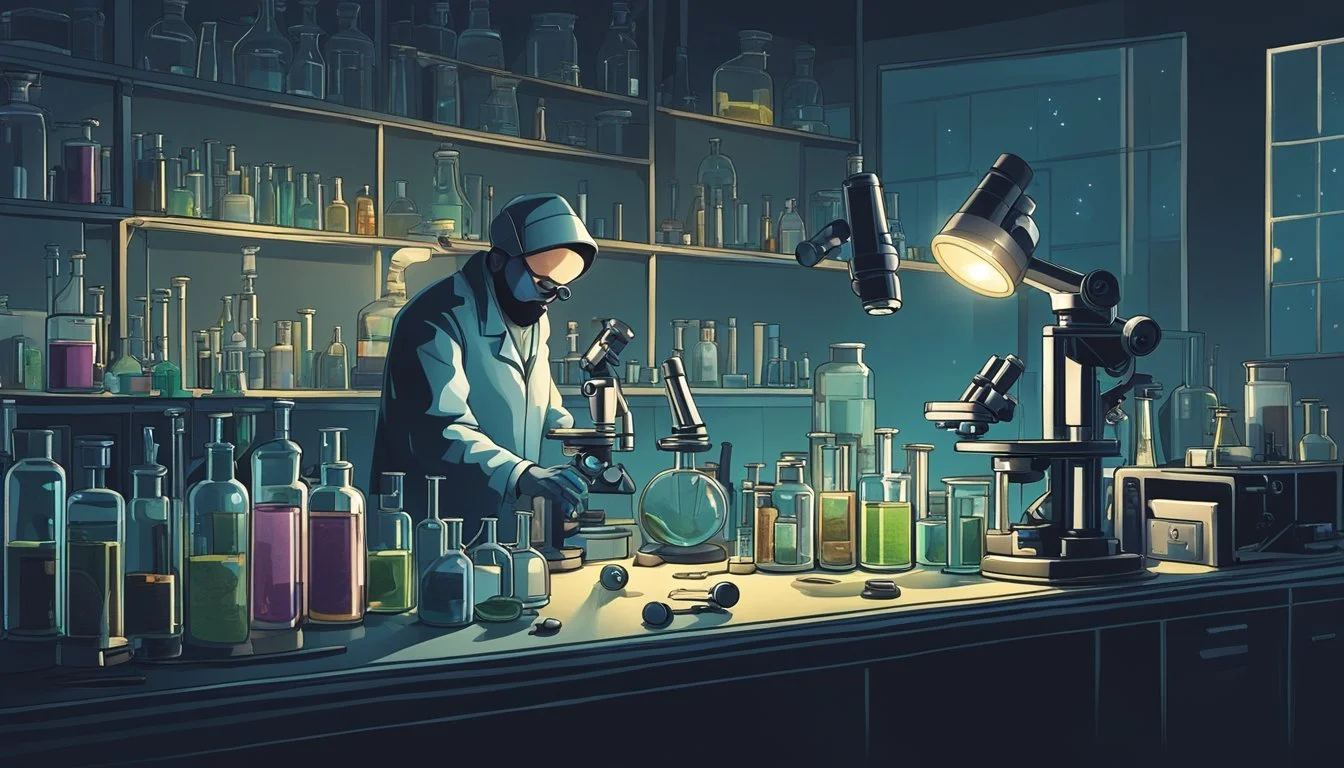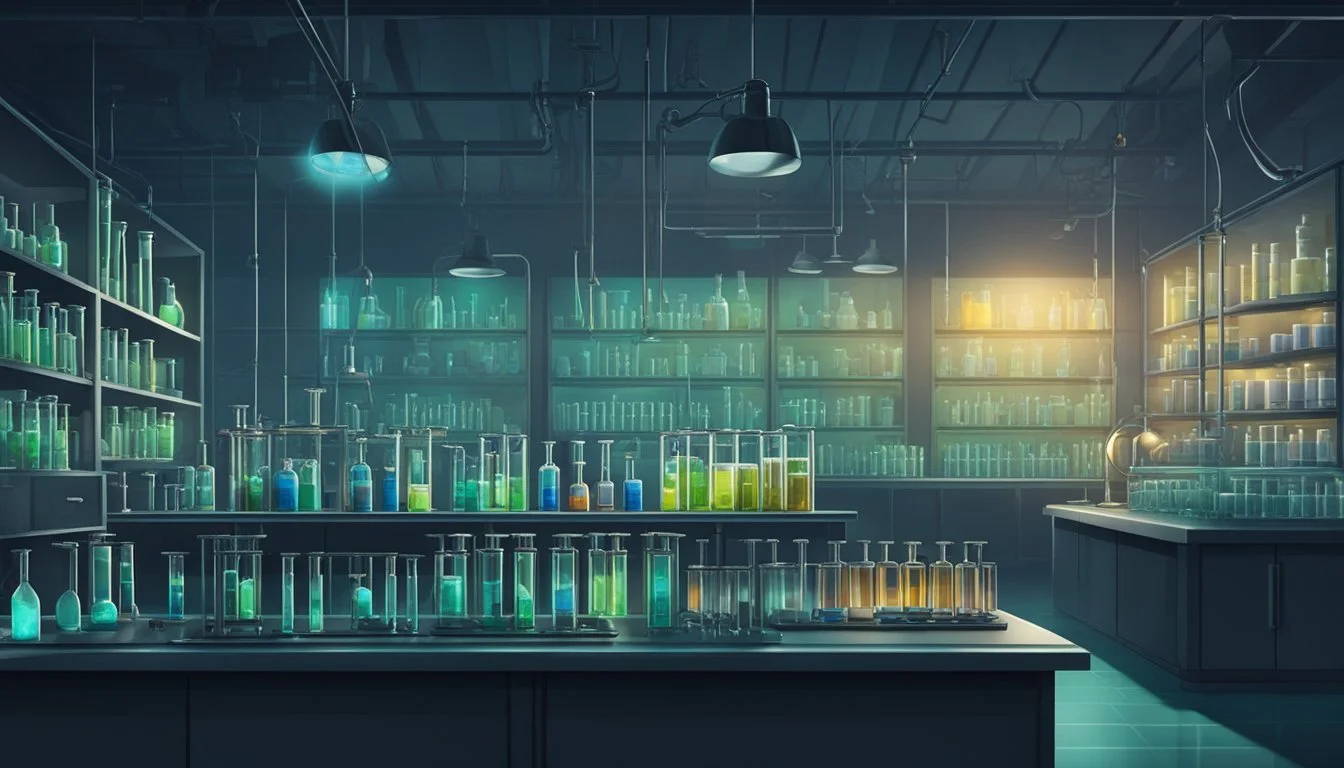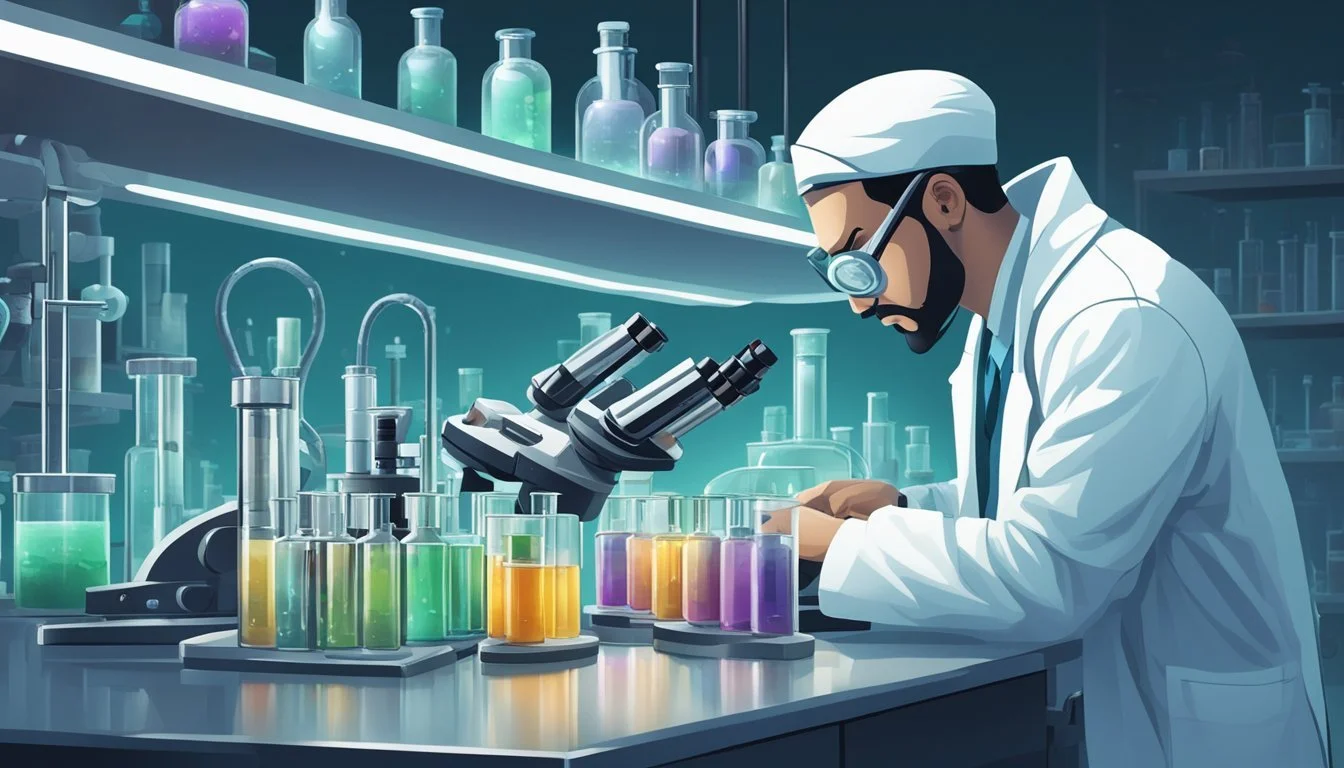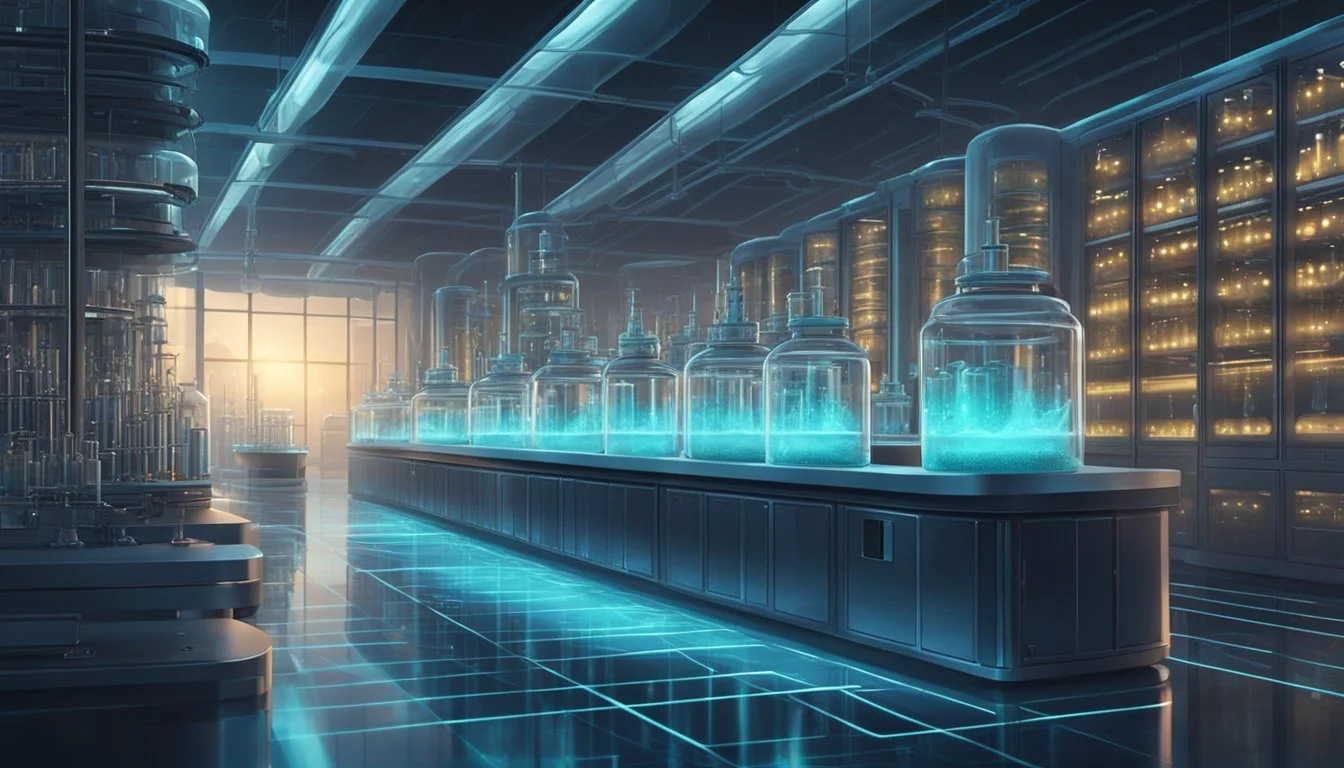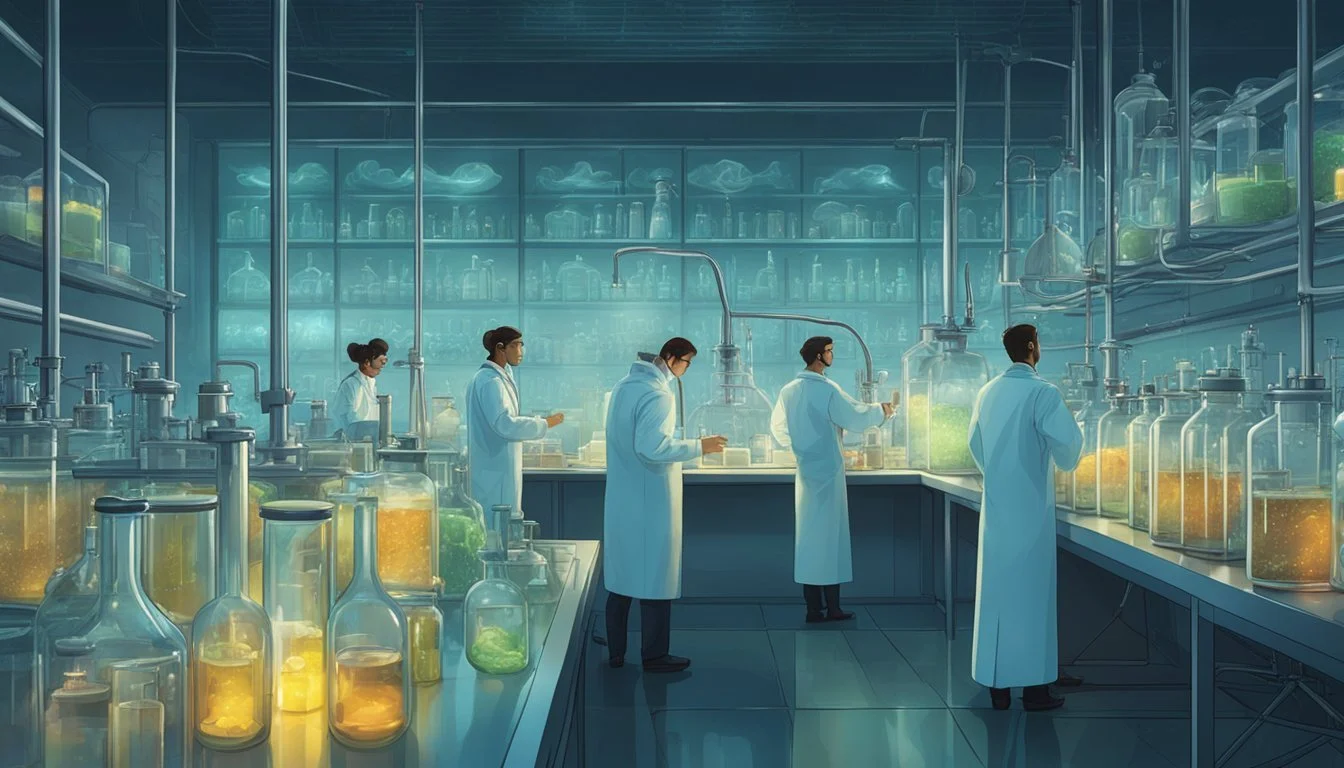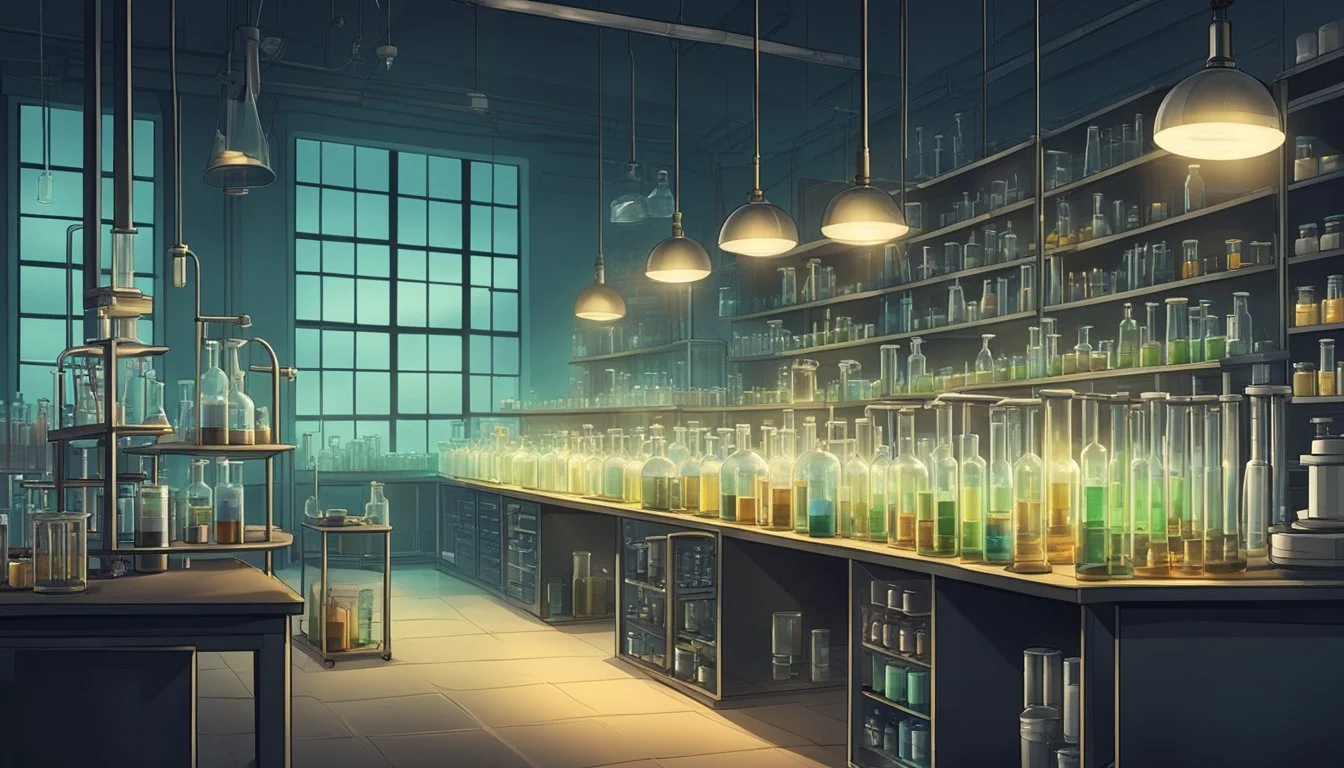6 Disturbing Documentaries on Illegal Human Cloning Attempts
Unveiling Covert Scientific Transgressions
Human cloning remains one of the most controversial scientific frontiers, sparking intense ethical debates and legal restrictions worldwide. While mainstream science has largely shunned the practice, some fringe groups and rogue researchers have allegedly attempted to cross this forbidden line.
Several documentaries have shed light on disturbing claims of illegal human cloning attempts, exposing the shadowy world of underground laboratories and pseudoscientific cults. These films examine the motivations, methods, and potential consequences of such endeavors, raising important questions about the limits of scientific experimentation and the nature of human identity. From self-proclaimed alien prophets to disgraced scientists, the subjects of these documentaries offer a glimpse into a realm where ambition and delusion collide with profound ethical implications.
1) The Cloning Revolution
The cloning of Dolly the sheep in 1996 marked a pivotal moment in scientific history. Scottish scientists successfully created the first mammal cloned from an adult somatic cell, sparking global interest and debate.
This groundbreaking achievement opened new possibilities in genetic engineering and biotechnology. It also raised ethical questions about the potential for human cloning.
Documentaries soon emerged to explore the science behind Dolly's creation and its implications. These films delved into the technical aspects of cloning and the wider societal impacts.
As cloning technology advanced, some scientists pushed ethical boundaries. South Korean researcher Hwang Woo-suk gained notoriety for his controversial work on human cloning.
Hwang's research initially garnered widespread attention and support. However, his claims of successfully cloning human embryos were later discredited, damaging public trust in cloning research.
The cloning revolution continues to captivate public imagination and fuel scientific pursuits. Documentaries on this topic often examine both the potential benefits and ethical concerns surrounding cloning technology.
2) Frankensteins of Science
The documentary "Frankenstein Science: Human Cloning" explores the controversial attempts to clone human beings. It features interviews with leading biotechnology experts and examines the ethical and technical issues surrounding human cloning.
The film draws parallels between the fictional Dr. Frankenstein's creation and modern cloning techniques. It discusses three types of cloning: DNA, therapeutic, and reproductive cloning, each with its own set of challenges and implications.
Various animals that have already been successfully cloned are showcased in the documentary. This demonstrates the rapid advancements in cloning technology and raises questions about its potential application to humans.
The documentary also delves into the work of a small group of doctors pursuing human cloning. Their efforts are presented as a real-life manifestation of "Frankenstein science," pushing the boundaries of ethical and scientific norms.
Experts in the field weigh in on the feasibility of refining current cloning technologies for human use. They discuss the potential consequences and societal impacts of such advancements.
3) Duplicating Desperation
"Duplicating Desperation" explores the dark underbelly of illegal human cloning attempts. This documentary sheds light on the lengths some individuals go to in pursuit of creating human clones.
The film follows several underground laboratories where scientists work in secret, risking legal consequences to push the boundaries of genetic engineering. It reveals the motivations behind these clandestine efforts, ranging from personal grief to scientific ambition.
Interviews with former researchers provide chilling insights into the ethical compromises made in these illicit experiments. The documentary also examines the potential consequences of successful human cloning, including identity issues and societal impacts.
Experts weigh in on the technical challenges and dangers associated with human cloning attempts. The film highlights the inadequate safety measures and lack of oversight in these unauthorized operations.
"Duplicating Desperation" raises thought-provoking questions about the limits of scientific inquiry and the moral implications of human cloning. It serves as a sobering reminder of the ethical responsibilities that come with advanced biotechnology.
4) Ethics in the Lab
Scientific laboratories conducting human cloning experiments face numerous ethical challenges. These range from the sourcing and use of human embryos to concerns about potential exploitation of women for their eggs.
Researchers must grapple with questions about the moral status of cloned embryos. Some argue these embryos deserve full moral consideration, while others view them as clusters of cells.
Informed consent is another critical issue. Donors providing genetic material or eggs for cloning research must fully understand the implications and potential uses of their contributions.
Labs must also consider the long-term effects of their work. Even if current experiments don't result in live births, they may pave the way for future human cloning attempts.
Transparency in research methods and results is crucial for maintaining public trust. However, this can conflict with desires to protect intellectual property or avoid controversy.
Oversight and regulation of cloning experiments vary widely between countries. This creates challenges for international collaboration and raises concerns about "cloning tourism."
Human cloning research intersects with broader debates about genetic engineering and designer babies. Labs must navigate these complex ethical landscapes carefully.
5) The Human Blueprint
The Human Blueprint documentary explores the groundbreaking Human Genome Project. This scientific endeavor aimed to map and sequence the entire human genome, unlocking the genetic code that makes us human.
Led by Francis Collins, director of the National Human Genome Research Institute, the project was a monumental undertaking. Collins described the genome as a "Book of Life" containing three volumes of genetic instructions.
The documentary delves into the ethical implications of decoding human DNA. It examines how this knowledge could potentially be used for human cloning and genetic modifications.
Experts discuss the scientific challenges and breakthroughs encountered during the project. They explain complex concepts like gene sequencing and DNA mapping in accessible terms.
The film also explores the potential medical applications of genomic research. It highlights how understanding our genetic blueprint could lead to personalized treatments and disease prevention strategies.
Throughout the documentary, viewers gain insights into the intricate world of human genetics. The Human Blueprint offers a fascinating look at the science that defines our species at the molecular level.
6) Illicit Genetic Mirrors
"Illicit Genetic Mirrors" explores the shadowy world of illegal human cloning attempts. This documentary sheds light on underground laboratories and rogue scientists pushing ethical boundaries.
The film interviews former researchers who claim to have participated in secret cloning experiments. It examines the motivations driving these controversial pursuits, from scientific ambition to potential military applications.
Experts discuss the technical challenges and risks associated with human cloning. They explain why most attempts have failed and the dangers posed to any potential clones.
The documentary also delves into the black market for human eggs and surrogate mothers. It reveals how some wealthy individuals have allegedly sought to create genetic copies of themselves or deceased loved ones.
Law enforcement efforts to uncover and shut down illicit cloning operations are highlighted. The film explores the legal and ethical debates surrounding human cloning technology.
Viewers are left to ponder the implications of this technology falling into unscrupulous hands. The documentary raises thought-provoking questions about the future of human reproduction and genetic engineering.
Historical Context of Human Cloning
Human cloning has fascinated scientists and the public for decades, sparking intense debates about ethics and scientific progress. The concept evolved from early theoretical discussions to groundbreaking experiments with animals.
Early Attempts and Theories
The idea of human cloning emerged in the early 20th century. In 1902, artificial embryo twinning was first successfully performed on a salamander. This technique laid the groundwork for future cloning research.
In the 1950s, scientists began exploring nuclear transfer in frogs. These experiments showed that genetic material from one organism could be transferred to another, a crucial step towards cloning.
Science fiction also played a role in popularizing the concept. Aldous Huxley's 1932 novel "Brave New World" depicted a society using reproductive technology, including cloning.
Key Scientific Developments
The birth of Dolly the sheep in 1996 marked a major milestone in cloning history. Dolly was the first mammal cloned from an adult somatic cell using nuclear transfer.
This breakthrough led to increased public awareness and debates about the potential for human cloning. Many countries quickly moved to ban human reproductive cloning.
In 2001, researchers claimed to have created the first human embryo clone for medical research. This announcement intensified ethical discussions and led to stricter regulations in many nations.
Despite these advancements, human reproductive cloning remains illegal in most countries. The focus has shifted to therapeutic cloning for medical applications, though this area also faces significant ethical challenges.
Ethical Implications
Human cloning attempts raise profound moral questions and legal challenges. The practice forces society to grapple with complex issues surrounding human life, identity, and scientific boundaries.
Moral Concerns
Human cloning experiments confront fundamental beliefs about the sanctity of life. Critics argue it reduces humans to mere products, potentially leading to exploitation. There are fears about psychological impacts on cloned individuals, who may struggle with unique identity issues.
Some worry cloning could create a "designer baby" mentality, where parents seek to create "perfect" children. This raises concerns about genetic discrimination and widening societal inequalities.
Religious groups often oppose human cloning, viewing it as "playing God" and interfering with natural procreation. Ethicists debate whether cloning violates human dignity and autonomy.
Legal Challenges
Most countries have banned reproductive human cloning. Enforcing these bans proves difficult, especially with underground experiments. Legislators struggle to keep pace with rapid scientific advancements.
Defining legal personhood for clones presents complex questions. Are clones entitled to the same rights as naturally born humans? How should inheritance and citizenship laws apply?
Regulating therapeutic cloning (for stem cell research) separately from reproductive cloning creates additional legal hurdles. Balancing potential medical benefits against ethical concerns requires careful policy considerations.
Intellectual property issues arise around cloning techniques and cloned organisms. This raises questions about ownership and commercialization of human genetic material.
Impact on Science and Society
Illegal human cloning attempts have profoundly shaped scientific research priorities and public attitudes toward genetic technologies. These controversial experiments have sparked intense ethical debates and influenced policy decisions worldwide.
Perceptions of Cloning
Public opinion on human cloning remains largely negative. Many view it as unethical and dangerous, citing concerns about playing God or creating humans as commodities. Scientists face increased scrutiny and skepticism about genetic research.
Media portrayals of cloning in documentaries and science fiction have fueled fears about "designer babies" and loss of human individuality. This has led to stricter oversight of embryo research and assisted reproductive technologies in many countries.
Some see potential benefits in therapeutic cloning for medical treatments. However, the line between therapeutic and reproductive cloning remains blurry for much of the public.
Future Implications
Illegal cloning attempts have accelerated the development of regulations around emerging biotechnologies. Many nations have enacted bans or moratoriums on human reproductive cloning.
These controversies may slow progress in stem cell research and regenerative medicine. Scientists must now navigate complex ethical terrain when pursuing genetic studies.
Cloning debates have increased public engagement with bioethics. More people are grappling with questions about genetic enhancement and the limits of manipulating human biology.
Long-term, human cloning fears could shape acceptance of future technologies like artificial wombs or genetic engineering. Policymakers face ongoing challenges in balancing innovation and ethical concerns.

